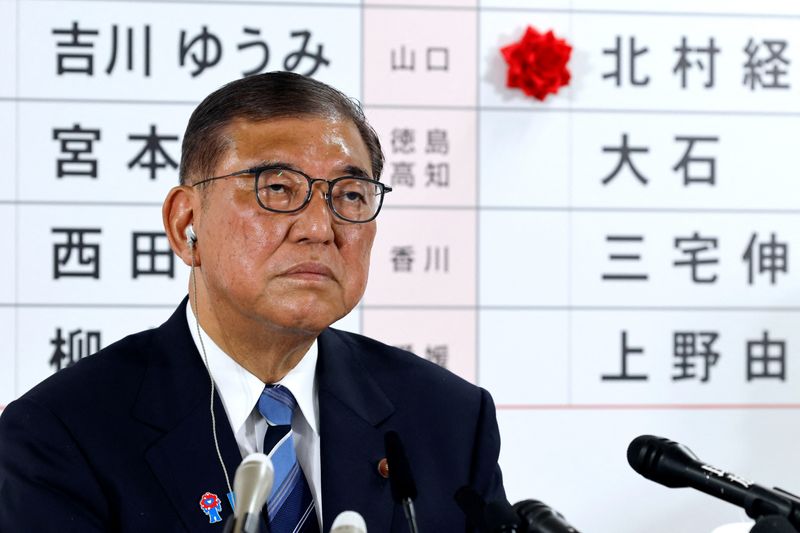By Vidya Ranganathan
SINGAPORE (Reuters) -Japan’s upper house election on Sunday dealt a big blow to the ruling coalition and sets markets up for possible policy paralysis and a bigger fiscal deficit, much of which is already priced in, analysts said.
The nation’s ruling coalition lost control of the upper house, further weakening Prime Minister Shigeru Ishiba’s grip on power even as he vowed to remain party leader, citing a looming tariff deadline with the United States.
Japanese markets were closed on Monday for a holiday, but the rise in the yen and Nikkei futures showed investors had already priced in the election outcome. The Japanese currency has weakened considerably this year on expectations of changes to taxes and a bigger fiscal deficit.
The election result, while not entirely a shock to markets, also comes at a tricky time for a country trying to get a tariff deal with U.S. President Donald Trump before an Aug. 1 deadline.
Japanese government bonds (JGBs) plunged last week, sending yields on 30-year debt to an all-time high, while the yen slid to multi-month lows against the U.S. dollar and the euro.
“I will not chase the coalition loss trades, and I suspect participants will spend some time analysing the implications of the loss, which could take time to materialize, and also refocus attention to the trade negotiations which is another major macro risk for Japan,” said Rong Ren Goh, a portfolio manager in the fixed income team at Eastspring Investments.
Investors expect it will be a while before it becomes clear whether the ruling coalition intends to continue as a minority government, or draw in a new partner.
Among the most likely candidates is the Democratic Party for the People (DPP), which has urged the Bank of Japan to reverse course and again loosen monetary policy. Investors are bracing for the LDP to compromise heavily to accommodate opposition parties’ desire for tax cuts.
Ishiba’s fate also remains an unknown, although he said on Sunday he intends to stay in his position.
Within the Liberal Democratic Party (LDP), a leading candidate to replace Ishiba, should he step down, is Abenomics proponent Sanae Takaichi, who has advocated for a resumption of monetary easing by the BOJ.
All three leading opposition parties back some form of consumption tax cuts, with the populist, right-wing Sanseito proposing a phase-out of VAT altogether.
Those cuts would have to be paid for with increased Japanese government bond issuance. With debt about 2-1/2 times GDP, Japan is already the world’s most indebted major country.







